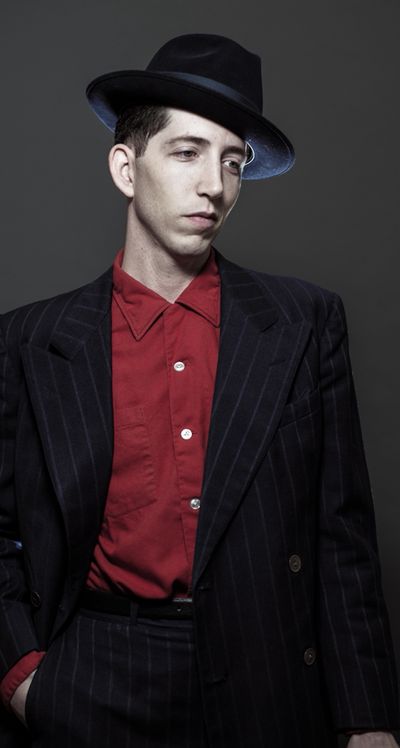Fuller sound, same roots
Pokey LaFarge embraces American music as the ‘new classical’

Pokey LaFarge has taken his penchant for all things vintage and crafted it into an aural anachronism of country, Western swing, ragtime, jazz, bluegrass and Americana in a way that shies away from these technology-obsessed times and brings the nostalgia to Technicolor-life, all the while pushing the boundaries of tradition.
LaFarge was recently honored with a second consecutive Best Americana Album win by the Independent Music Awards, was a finalist in the International Songwriting Competition and signed with Jack White’s Third Man Records.
In this interview, the 29-year-old St. Louis singer-songwriter and bandleader talks about his new self-titled record, its bigger sound, and his uncompromising pride in classic American culture.
- - -
IJ: You’ve got a new album coming out next month. What are you doing differently this time around?
PL: I’ve always wanted an orchestra. That’s hard to obtain economically at a young age, but I’ve been playing with a six-piece now, we have cornet and clarinet, so the music, layers and textures are a step closer to that direction of that big band that I want. This is out of my more minimalist nature and into a bigger, more textured sound.
IJ: Why is it important for you to have that bigger, more textured sound?
PL: It’s really a manner of being dynamic and keeping things fresh for the listener and for myself. Having more instruments and dynamics and textures means having more options for a song and a show and an album.
IJ: How did you get into playing this style of music?
PL: My grandparents on both sides were both very historically minded and very proud Americans and World War II veterans and novice musicians. They brought me to bluegrass festivals at a young age, and that’s what really got me playing. When I saw Bill Monroe, that hit me like a lightning bolt. That touched me at a young age in my early teens, going through those angst years. When everyone else was listening to gangsta rap and punk rock I heard this other music … and so I picked up a mandolin and started hitchhiking out West.
IJ: Talk about the idea that it’s not retro music, but rather that American music never died.
PL: It’s the new classical music. People have been playing classical music for 500 years. Jazz, bluegrass, R&B, doo-wop, soul, rock ’n’ roll, hip-hop, ragtime, Dixieland – we invented all of that. That’s American music, and it was all invented within 50 years, and that is how it evolved, up until rap in the mid-90s – I don’t think it has evolved much past that.
The music used to be more regional. But the soil has been so tilled up now with the Internet that people are looking internationally instead of locally.
It’s unfortunate that with the advancement of technology and the awareness of the Internet that there’s a loss in the quality of music. I want quality music, quality beer, quality food and quality architecture. That’s what you get from a country’s culture, not the politics or controversial military practices. It’s the music.
No matter what people say, they can talk smack about America and have never been here, but they are wearing American clothing and listening to American music. I’m not going to take that for granted.
It’s interesting how music has developed in this country where no one cares about the solo pianist or the instrumentalists. Acoustic music has been so dumbed down by indie-folk that someone can bang on a banjo like an electric guitar, without having done any research, and you’re a folk band. I take that personally.
You might perceive that with bitterness but it’s more that I take pride in American music. It’s not black music, or white, Southern or Northern. I’m from St. Louis, and I’m proud to come from the Midwest. It’s an underdog town. Hell, Spokane is an underdog town. Gonzaga is an underdog every year and look at what they do. I’m not from New York or L.A. or Portland, and I didn’t have to move to Austin or Nashville to make it in music. I have no choice but to be proud of that.